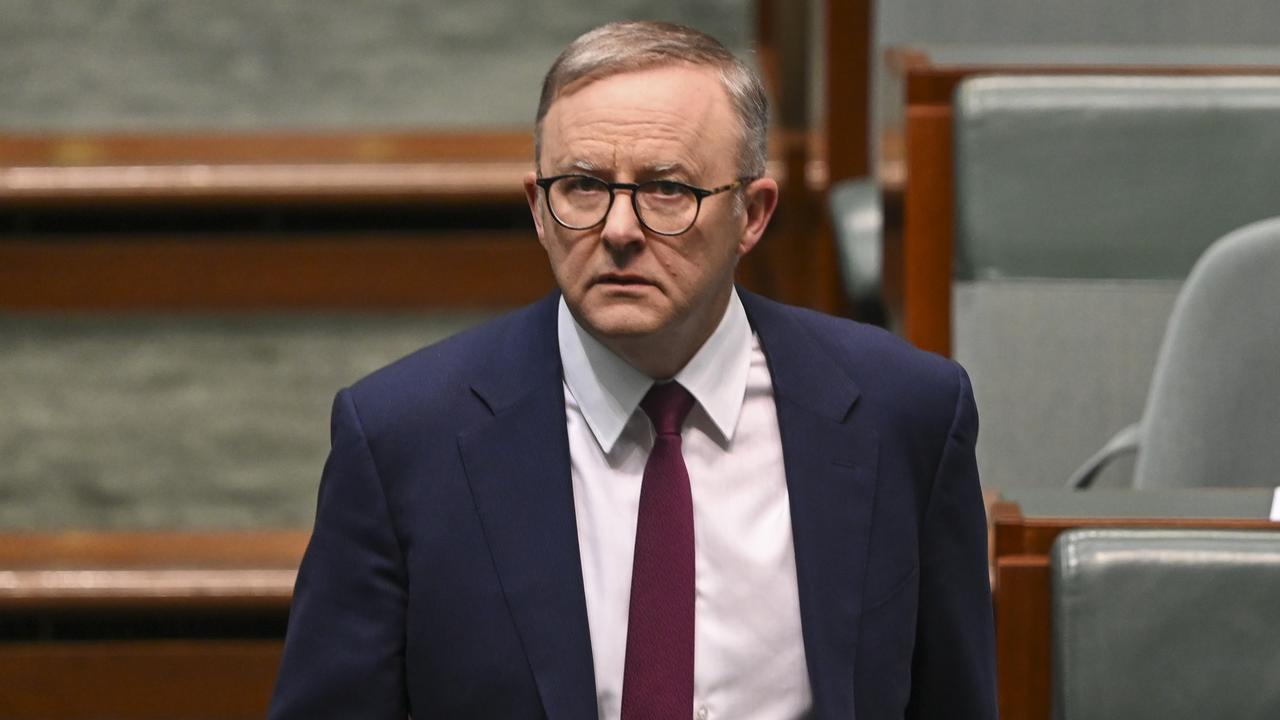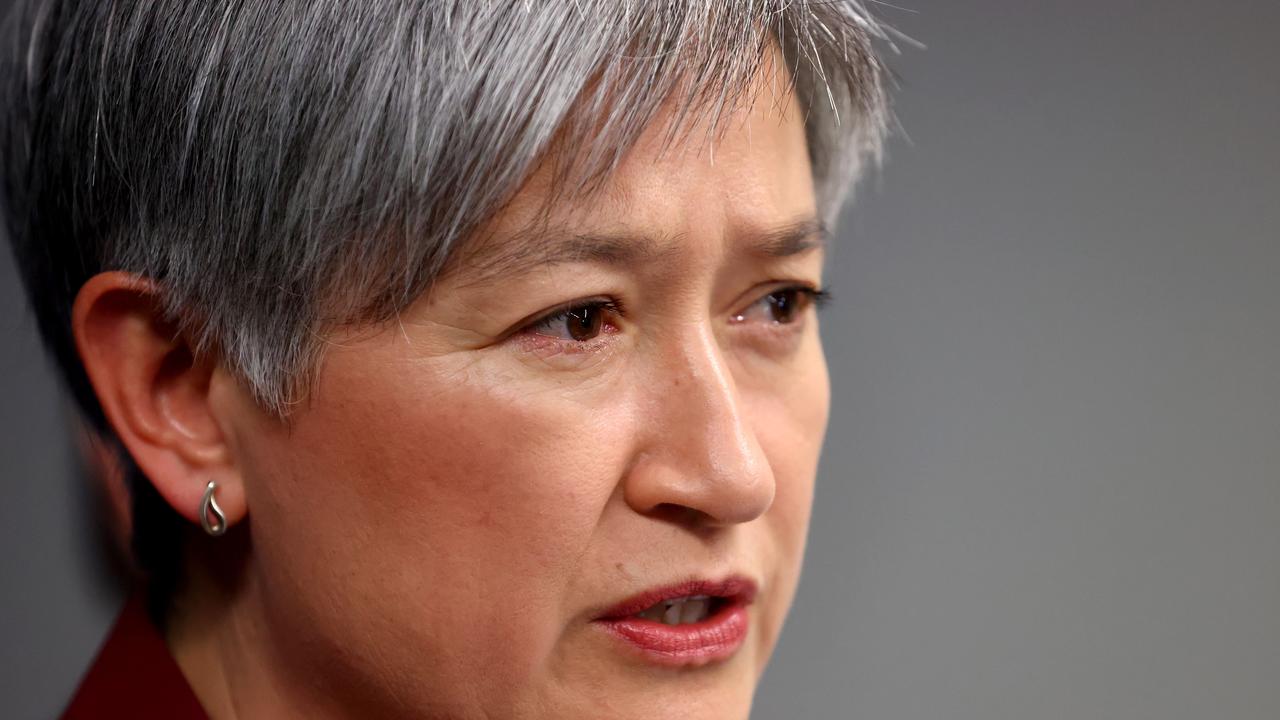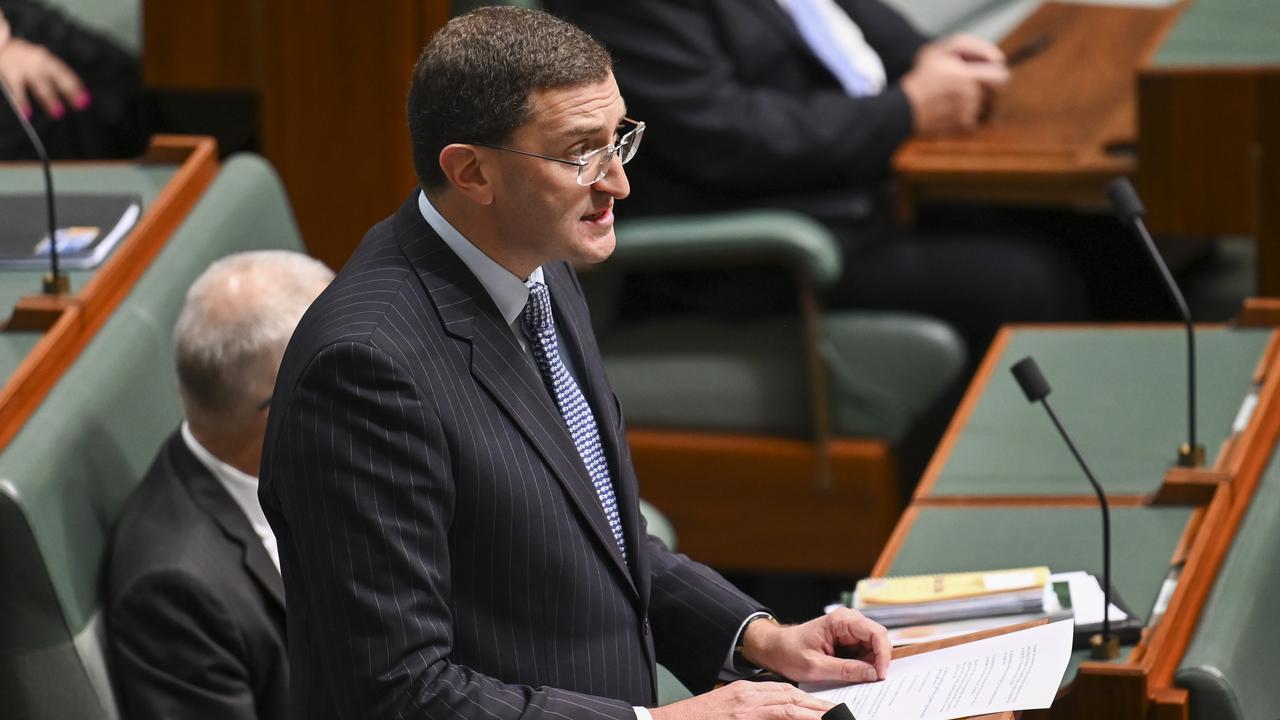Labor to switch position on Israel, to resume recognition of ‘Occupied Palestinian Territories’
Labor has vowed to strengthen its objections to ‘illegal’ Israeli settlements in a major swing ahead of next week’s national conference.

Labor will harden its position on Israel, reversing changes Scott Morrison made, to resume recognition of “Occupied Palestinian Territories”.
In a major policy shift agreed to by caucus on Tuesday, the party will now recognise the Israeli West Bank settlements as being “illegal under international law”, as previous governments have done.
Foreign Minister Penny Wong said the change would “strengthen” the government’s position on the ongoing Israel-Palestine conflict.
But the Opposition, especially proud Jewish MP Julian Leeser, have slammed the move, and accused the caucus of pandering to the “hardcore Labor left” ahead of the party’s national conference next week.
The reversal of the previous government’s policy follows a decision by the Albanese government last year to reverse Mr Morrison’s recognition of West Jerusalem as the capital of Israel, which prompted backlash.

Senator Wong told the Senate on Tuesday the government was “guided by the principle advancing the cause of peace in progress”.
“It is clear that viewing the conflict from one perspective will not achieve such peace,” she said.
“Any lasting solution to the conflict cannot be at the expense of either Palestinians or Israelis. The conflict is a matter to be resolved through negotiations between the parties.”
In July, Senator Wong joined her UK and Canadian counterparts to condemn Israel’s expansion of settlement building in the West Bank, but did not label the move illegal.
Her language had clearly changed by Tuesday, telling the Senate the settlements “are illegal under international law and are a significant obstacle to peace”.
“This is consistent with the position of past governments, reflects legal advice, and UN Security Council resolutions that determine the settlements have no legal (standing) and constitute a violation of law,” she said.

Mr Leeser said the decision proved the Labor Party was being “controlled” by “the hard left and trade union movements”.
There has been speculation some members of the party would use next week’s national conference in Brisbane to call for the party to take a stronger position, and commit to a process of recognising Palestinian statehood.
“The Jeremy Corbyn faction who doesn’t even want to recognise the right of the state of Israel to exist,” he told ABC News.
“The Labor Party has had a problem with the hard left at this conference. They had two foreign policy matters which (the hard left has) attacked – firstly AUKUS and secondly the state of Israel.
“What they have done is torn down one of those foreign policy pillars – which is support for the state of Israel – to preserve the other.
“This decision will not help a two-state solution on the ground. It will only embolden and please organisations that we in this country have listed as terrorist organisations like Palestinian jihad. “
He said ultimately the decision sent a “bad message, not just to Israel, but to any of our allies around the world, that Australian foreign policy is subject, while this government is in power, to the whim of the faction bosses, within the Labor movement who are controlling a national conference”.
Mr Leeser did not accept the proposition put to him that international law had historically been called illegal.
The Zionist Federation of Australia and the Executive Council of Australian Jewry have released a statement saying they are deeply concerned by the government’s change in language about the Israeli-Palestinian conflict.
The ECAJ and ZFA are representative peak bodies of the Australian Jewish community.
“The change in language is inaccurate, ahistorical and counter-productive,” ECAJ President Jillian Segal and ZFA President Jeremy Leibler jointly said.
“Israelis and Palestinians have agreed to negotiate the division of the West Bank between them.
“Describing the territories as ‘Palestinian’ not only pre-empts the outcome of negotiations but is counter-productive.”
They said the Israeli–Palestinian conflict must not become a political football.
“The Labor leadership ought to push back against factions within Labor, and instead work to re-establish a sensible, centrist and sustainable bipartisan position on the Israeli–Palestinian conflict.”



